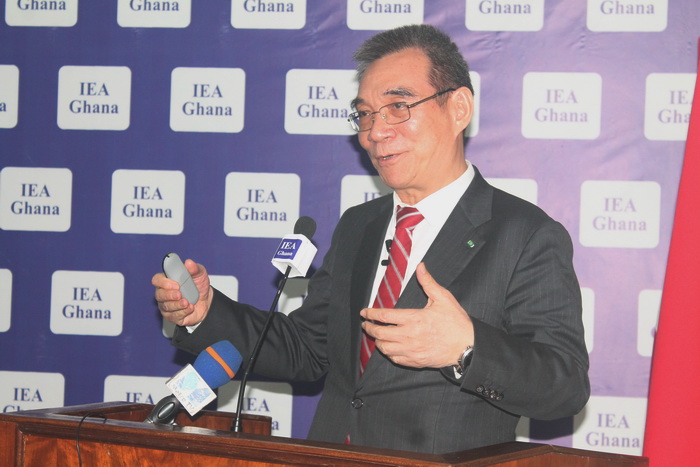
Ghana on verge of rapid development — Prof. Lin
Professor Justin Yifu Lin, the Director of New Structural Economics and Dean of the Institute of South-South Cooperation and Development in China, has said that Ghana is on the verge of rapid development.
Advertisement
He said the development ideas and policy initiatives of the government were on track and could speed up the growth of the country’s economy.
Prof. Lin, who is also the former Senior Vice-President and Chief Economist of the World Bank, also stated that the global community was anxiously waiting to see the end result of the policy initiatives and how it would bode well for the country and its people.
IEA invitation
In an interview with the Daily Graphic in Accra last Thursday, Prof. Lin, who is in the country on the invitation of the Institute of Economic Affairs (IEA) to deliver a public lecture, commended the government’s policy of One-Village, One-Dam.
He said the policy was a very good initiative which involved irrigation and access to water, and that was essential for enhanced agricultural productivity.
He also described the free senior high school policy as helpful but not sufficient.
“If you do not provide jobs for the graduates when they come out with high school education, the graduates will be disillusioned and may migrate or stay home very unhappy,” he said.
He, therefore, underscored the imperative need for an educational programme that was supported with job creation.
Reservation
On the One-district, One-factory, Prof. Lin expressed some reservation.
In his view, there was the need to have economies of scale and a supply chain which is efficient.
He called on the government to set up industrial parks and use government facilitation to create the supply chain as well as guarantee low production cost.
Furthermore, he said the quality of the manufactured goods or products must be competitive globally so as to stand the test of time.
“We need to remember that products from the various factories need to compete with imported goods which are produced with efficient supply chain and low production cost,” he stated.
In so doing, he said the quality and cost of manufactured goods produced must be of importance.
“If the cost of production is high, it is hard for the product to compete both locally and globally,” he stated and added that “that is why many African products face stiff global competition”.
Donor dependency syndrome
On aid, he said Ghana could not solely rely so much on aid and be successful about it.
“My approach is to look at what comparative advantage a country has and can create conditions to scale up what they can do well,” he stated.
He said there was the need to improve infrastructure and the business environment, put in place more pragmatic interventions and right identification of sectors and make business simple to start industrialisation.
Right vision
In all of these, Prof. Lin said it was important for Ghana to have the right vision, leadership and the political will for the implementation of the vision.
He added that if the vision of any country was not right, then its leadership could not do much to engender rapid development.
He indicated that for Ghana to have a dynamic and sustainable industrialisation programme, there was the need to place premium on setting up a sustainable and inclusive industrialisation programme in sectors that it had comparative advantage.
He, however, said he did not doubt the ability of African leaders but cautioned that “if a nation has an over-ambitious development plan outside sectors that it has comparative advantage, then it may end up building white elephant projects”.



